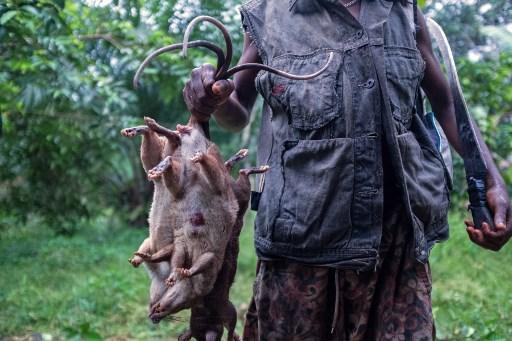Each year, 44.4 tonnes of meat from domestic or wild animals brought in from West and Central Africa pass through Brussels National Airport.
Some of it remains in Belgium while the remainder transits through the country, according to a study by the Public Health Department in collaboration with the Biodiversity Platform and presented on Tuesday at a conference held in Brussels. However, the scope of the phenomenon is difficult to assess. Only meat imported illegally by passengers and intercepted by Customs at Zaventem Airport is covered by the estimates.
The illegal importation of bushmeat and other meat is the focus of Tuesday’s conference, whose theme was "Dead or Alive: Towards a Sustainable Wildlife Trade". It brought together over a hundred experts with a view to reflecting on the implementation of recommendations for ending the illegal trade in wildlife and bushmeat, a practice that can have adverse consequences for human and animal health, biodiversity and the environment.
Highlights of the conference included the presentation of the results of analyses done on meat seized from the luggage of travellers from sub-Saharan Africa at the Brussels National Airport. These showed that 38% of the samples analysed came from wild animals and a third of these species were protected. The most common ones were pangolins, baboons, monkeys, antelopes and reptiles.
One study, focussing on the detection of micro-organisms, identified a carrier of the African swine virus in addition to bacteria that can cause gastro-enteritic problems.
The World Wildlife Fund (WWF) described trafficking in bushmeat and wild animals as a “scourge against biodiversity”. It urged Belgium’s Government and air transport sector to step up the fight against it by strengthening customs controls and raising awareness among travellers and the African diaspora.
One of the possible spinoffs of the conference is the creation of an inter-federal task force to work on implementing its recommendations.
These include mounting campaigns to raise awareness among travellers on the potential impact of the introduction of bushmeat on the health of animals present in Belgium and on the consequences of the illegal trade in protected species on global biodiversity, Public Health Director Pierre Biot said.
The Brussels Times

